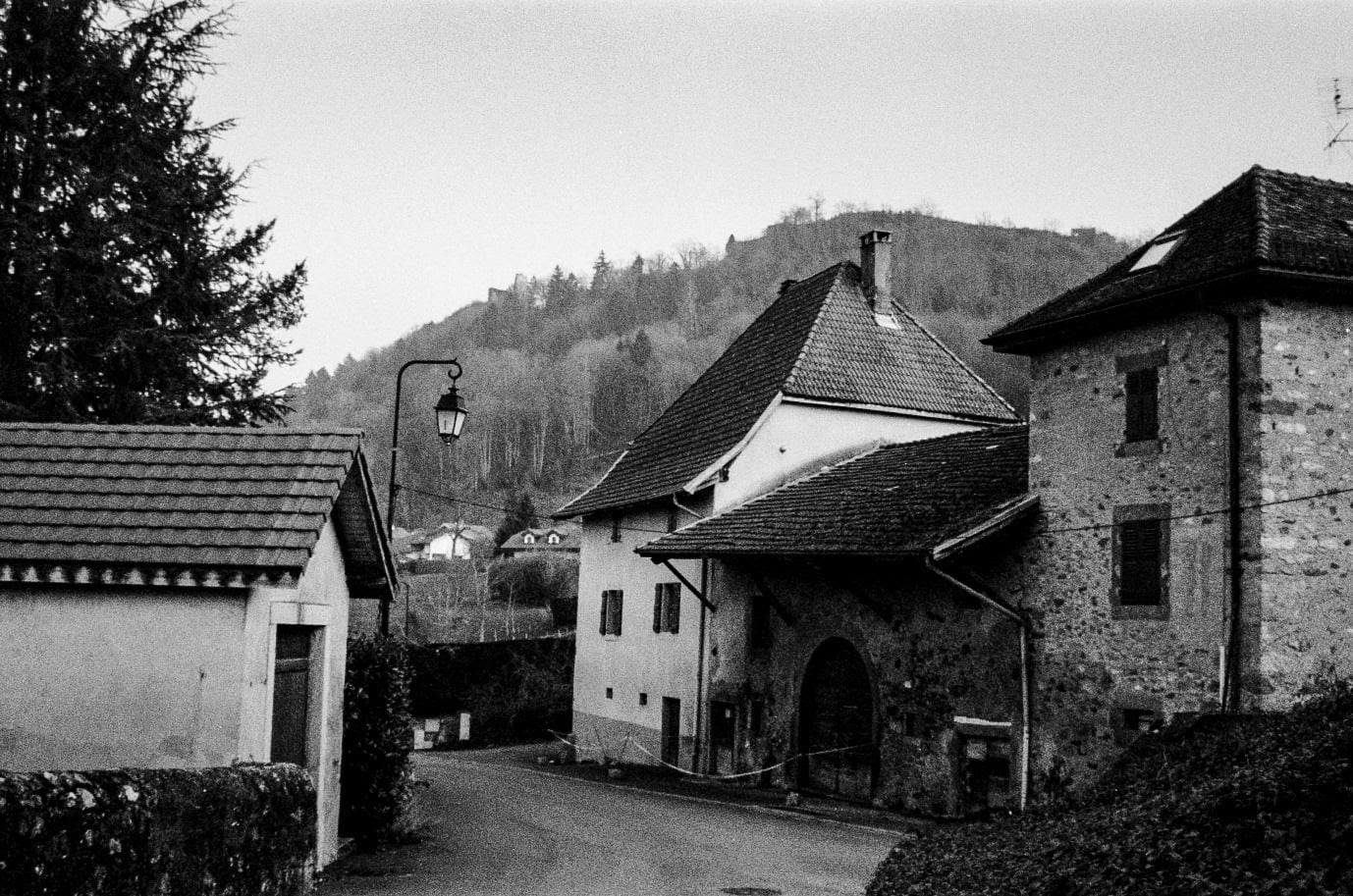It’s my last day with my paternal grandmother in the alps, France, and we are sitting side by side in the car on the way to the airport. The last time I was here was 5 years ago, and I remember these emotional drives to the airport more clearly than other drives we’d been on, each one evoking the memory of the last. The knowledge that a period of time is about to end seems to make it go on for much longer, especially when it’ll be a while before you see a loved one again. I remember the sun brightly illuminating her face as she leant on the headrest, eyes closed and smiling. Frost-covered fields, distant hills and decaying châteaux rushed past through the window and the radio emitted the background noise of morning news – signs of the blazing reality I was returning to were unavoidable.
I thought that the light was beautiful on my grandmother’s face and hesitated before asking to take a photograph, remembering she had been upset when another relative had posted photos of her without permission. She has no computer or phone, so to her the internet is an unfamiliar place, not to be trusted. I reassured her the photo was just for my memory and focussed the lens the best I could in the shaky car, then released the shutter. I thought about how in a month’s time when the film was developed this photo would prompt memories of our walks in the countryside, already thinking that it would special to me given that it wouldn’t be posted on social media for other’s eyes.
Why do we have this urge to preserve memory through photos? In a few years, the photos I took and the words I wrote will form the outlines of what I remember from this trip. Photo albums, digital or otherwise, are abbreviations of memory that eventually supplant its content the more we return to them. When remembering my childhood, often I remember photos of it before my own memories, as if the photos were somehow more truthful. Held up as records of something that happened and bestowed with a special sense of authority, photos don’t preserve the impreciseness and fluidity of lived experience – they deaden it. Roland Barthes wrote that figures in photographs are “anesthetized and fastened down, like butterflies”. Is our obsession with picture-taking the manifestation of a kind of anxiety? An anxiety about mortality that prompts us to fasten down time and space, as if everything could be turned into an article of consumption and nostalgia?
Our assumption that photos are in essence memory, rather than counter-memory, drives our tendency to forget first-hand impressions of experiences. It is the mindset we bring to photos and our faith in their indexicality – that they are signs of something that was there, that depreciates lived, malleable memories. By rethinking photos as fragments rather than documentation of the real, we discover new potentials in the medium that rupture ways of seeing reality as consumable, exchangeable property.
Almost everyone uses a phone camera now and photo-taking at graduations, weddings and overseas trips often replaces events themselves as important. Yet there is always something aggressive about taking photos – the reason I hesitated in the car – it treats reality as something to be symbolically possessed and controlled. By turning experience into images, we create a substitute world that is increasingly felt as more real than reality. We may cherish the subjects we photograph but often it becomes the reflex of our anxieties about loss, a way of closing our eyes and creating distance rather than experiencing life fully.
Photo-taking provides a reassurance that even though this car journey will soon end and that nothing lasts forever, I can have a piece of it in a photograph and look at it one day expecting a revelation. Not a revelation that I can own a trace of the light on that morning in a photograph, but that the most important interactions don’t need a lens in-between them and can simply be, in the ever-shifting murkiness of memory, and that I can return to them differently every time.





